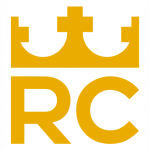

Credits
1.0
Content: All students (basic and advanced degree) will be required to do a careful reading of the major Christian and Jewish thinkers who have reflected on the holocaust: Hannah Arendt, Emil Fackenheim, Irving Greenberg, Gillian Rose, Johann Baptist Metz and John Pawlikowski. They must also show a careful reading of two contemporary Christian theologians whose thinking has been concerned with “the authority of those who suffer” in another context: Jon Sobrino and Gustavo Guttierez.
Understanding: students will be able to describe the historical context within which the holocaust took place. They will be able to summarize the various interpretations of that history: political, social, economic, religious. They will be able to analyze these various interpretations and to articulate the adequacy or inadequacy of these interpretations. Students will be able to articulate the limits of historical interpretation as it attempts to understand this event. Students will examine the history of the response of the churches during this time: co-operation, silence, resistance. They will analyze the possible reasons for these various responses.
Theological Understanding: students will be able to articulate the challenges that this historical event poses for Christian theology: the supercessionist theology, the relationship between revelation and history, radical evil, suffering, the Image of the suffering God, Christology. Students will not be required to answer these challenges but they will be able to articulate why they are important for Christian theology.
Values and Ecclesial Attitudes: All students (basic and advanced) will become more convinced of the importance of being able to read the signs of the times (political discernment). They will be able to apply the lessons of the past and learn from the mistakes in historical judgment. They will engage in consequential thinking, asking how their theological understandings are influenced by culture and in turn influence culture.
Furthering the theological education of the student: the professor will meet with each advanced degree student to help focus the longer paper in relationship to the overall interests of the students. The professor will meet with each basic degree students to focus their two shorter papers (10 pages each) as exercises in understanding, summarizing and analyzing. The first paper will require the student to summarize and analyze three significant interpretations of the holocaust i.e. how did it happen and why? The second paper will require the student to summarize and analyze the thinking of one of the theologians presented in the class.
A detailed course schedule is available for download.
Week 1
Introduction
Week 2
The Testimony of Those Who Suffered
Week 3
What Happened?
Week 4
Why Did It Happen?
Week 5
Perpetrators, Bystanders, Victims
Week 6
The Churches and the Holocaust
Week 7
Jewish Responses to the Holocaust: Levinas, Fackenheim, Greenberg, Marmur
Week 8
The Response of the Churches to the Holocaust
Week 9
Christian Theological Responses: Dietrich Bonhoeffer and the “Suffering God”.
Week 10
Christian Theological Responses: The Political Theology of Johann Baptist Metz, Jurgen Moltman, Dorothy Soelle
Week 11
The Authority of Those Who Suffer: Gustavo Guttierez, Jon Sobrino and Martha Zechmeister
Week 12
“What Then Must We Do?” (John 3:10)